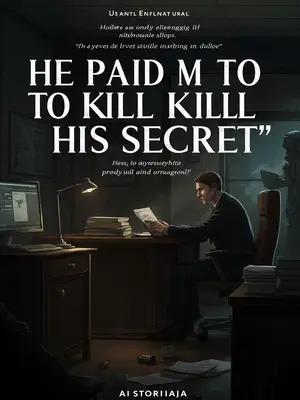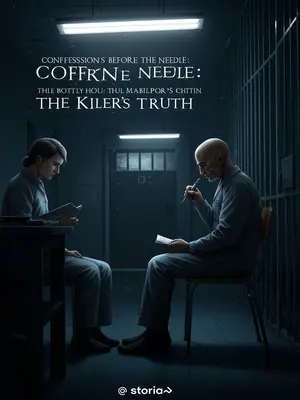Chapter 4: Motive and Mystery
We called the Ohio police and pulled up Emily’s case file. In 2005, on July 1, Emily Chen drowned in a river a mile from her school. The scene and autopsy both said it was an accident.
I scanned the photocopied reports—bad photos, blurred signatures. She was found by a jogger, backpack still on. The river was swollen from summer storms, the banks slippery. The coroner wrote ‘accidental drowning’ in thick blue ink.
“Investigative tech in 2005 wasn’t what it is now. Maybe there was something off in that case.”
Lisa sat back, arms crossed. “No security cameras, no DNA database. If there was foul play, it would’ve been easy to miss.”
Lisa shook her head. “It’s been too long. That case was closed, and in July 2005, David Harper and Susan were out of the country. Their families had no connection to the Chens.”
We checked travel records—Susan and David were in France for a conference. There wasn’t even a six-degrees connection. Our theory fell apart fast.
So what was Eric’s motive?
I scribbled circles on the whiteboard. Revenge? No. Money? No. Lust? Definitely not. Every path led back to nowhere.
If it was revenge, Eric’s parents both died of illness in Michigan, nothing to do with the Harpers.
Lisa read the obituaries out loud: cancer, then a stroke. No suspicious circumstances, no hidden enemies. The Harpers were still clean.
After the murders, Eric took valuables and cash from the Harper home. But his parents left him an inheritance—he wasn’t hurting for money.
His bank account was healthy, no gambling debts, no weird withdrawals. The jewelry never turned up at pawn shops or online—he just took it and vanished. Another dead end.
Lust? Not likely. Susan Harper was over forty, and Eric wasn’t bad-looking or broke—he wouldn’t have trouble finding a girlfriend.
Lisa snorted, “He’s got better hair than my last boyfriend.” We laughed, but the room stayed cold.
Not for money, not for revenge, not for lust, not random.
The textbook motives didn’t fit. The puzzle pieces belonged to different puzzles.
If he hadn’t saved Rachel and left a witness, no one would’ve ever traced the murders back to him. It would’ve been a perfect crime.
That haunted me. One act of kindness—if you could call it that—was all it took to unravel everything. Otherwise, he would’ve been a ghost, gone before sunrise.
Lisa had a sudden thought: “Maybe he wanted to make bigger headlines. Remember that case three years ago? The guy confessed, then took it all back in court.”
She meant the West Loop Strangler—famous for fake confessions, loved the spotlight. That case gave everyone in Chicago a migraine for months.
I nodded. “Yeah. The chief chewed us out for weeks.”
He threatened to make us walk the beat for a year. The press wouldn’t let it go. Still, Eric didn’t seem like the type to bask in the attention.
But Eric wasn’t like that.
He barely looked at the cameras, refused all interviews, signed the confession and went silent. No grandstanding, no drama.
Lisa shrugged. “That’s it. We’re out of options. Guess we’ll find out at trial.”
She closed her notebook and stared out the window, the last streaks of sunset painting the blinds. There was nothing left to do but wait for the court date.
On November 20, at the first hearing, Eric Chen was sentenced to death. He didn’t take back his confession or appeal.
The gavel hit the bench, and that was that. The courtroom was half-empty. Eric barely blinked as the judge read the sentence. It was like he’d already served his time before he walked in the door.
Case closed, or so it seemed.
We filled out the paperwork, boxed up the evidence, and tried to shake it off. But cases like this don’t let go—they stick to you, even when you’re off the clock.













